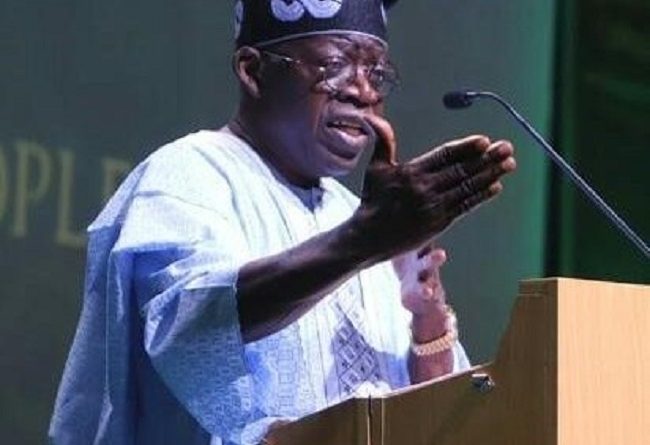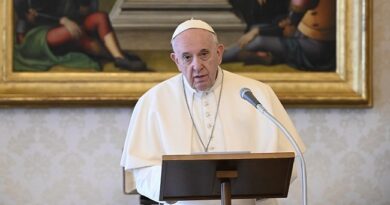Nigeria’s President Hands Over ECOWAS Leadership to Sierra Leone’s Bio
Nigeria’s President Hands over ECOWAS Leadership to Sierra Leone’s Bio
Newera News gathered that the outgoing Chairman of the Economic Community of West African States (ECOWAS) Authority of Heads of State and Government, President Bola Ahmed Tinubu, on Sunday called on regional leaders to remain vigilant and responsive to the evolving needs of West African citizens, particularly youth, women, and vulnerable groups.
“As we look to the future, I urge all of you to remain vigilant and responsive to the evolving need of our people. Let us deepen the cooperation, uphold diplomatic principles and foster inclusive growth that leaves no one behind”, Tinubu said during his closing address at the 67th Ordinary Session of the ECOWAS Authority in Abuja.
Tinubu, who chaired the regional body for two consecutive terms, handed over the leadership to President Julius Maada Bio of Sierra Leone, expressing confidence in his successor’s ability to lead ECOWAS into a new era of reform and unity.
Nigeria’s President Hands Over ECOWAS Leadership to Sierra Leone’s Bio
“As I now hand over the mantle of leadership to my great friend and dear brother, His Excellency President Julius Maada Bio of Sierra Leone, I do so with a deep sense of fulfillment and optimism for the future of West Africa,” he said.
Reflecting on his tenure, Tinubu acknowledged the complexities the bloc has faced, including political transitions, democratic backsliding, and rising insecurity across member states.
He reiterated the importance of balancing ECOWAS’ core economic mandate with the growing challenges of political instability and insecurity in the region.
“Our organization must continue to strike a fine balance between its core regional mandate of economic integration and the complex political, security and governance challenges. Economic integration cannot be superimposed on an untenable political environment.
That is why we must remain steadfast in our resolve to rise to these and emerging challenges”, Tinubu stated.
He thanked fellow Heads of State for the confidence reposed in him during his tenure, as well as the ECOWAS Commission and technical staff for their support in advancing the regional agenda.
“I remain confident that with the continued cooperation of all its members, ECOWAS will scale over greater heights in our collective pursuit of peace, security, stability and prosperity for our people and for our region,” he said.
In his acceptance speech, President Julius Maada Bio pledged to build on the foundation laid by Tinubu, while committing to lead ECOWAS through a period of reform, security renewal, and democratic deepening.
Speaking after receiving the baton of leadership from outgoing Chair, President Bola Ahmed Tinubu of Nigeria, President Bio said he was “humbled and grateful” for the trust reposed in him and in the Republic of Sierra Leone.
“I accept this responsibility with full awareness of the magnitude of the task ahead and the complexity of the moment. Our region is at a crossroads. The West Africa we lead today is facing serious challenges—some longstanding, others new and evolving”, Bio said.
In a landmark speech that acknowledged the multifaceted difficulties confronting the region, Bio outlined a bold four-point agenda for his tenure: restoring constitutional order, revitalising regional security, unlocking economic integration, and building institutional credibility.
“We must engage transitional governments constructively and support member states in building stronger democratic institutions rooted in the rule of law. From intelligence sharing to rapid response, we must confront new threats with unity and resolve”, Bio declared.
He emphasized that the ECOWAS of the future must not be seen as a “distant institution” but rather as a “proactive, people-centered vehicle for peace, inclusion and opportunity.”
Bio’s ascension comes at a time of heightened security and democratic challenges in the region, particularly with military coups, insurgencies in the Sahel, transnational crimes, and increasing socio-economic vulnerabilities placing pressure on governance systems and public trust.
“The democratic space is under strain. Citizens, especially our youth, are demanding not just elections, but accountability, transparency and a fair stake in national life”, Bio acknowledged.
He also noted the existential threats of climate change, inflation, energy constraints, and food insecurity, insisting that regional cooperation and reform must be urgent and people driven.
“West Africa’s future is not one of decline, but of possibility—if we act with courage, urgency, unity and moral clarity,” he said.
West African leaders are expecting a purposeful leadership from Bio. What’s your take on this News?




